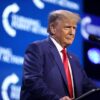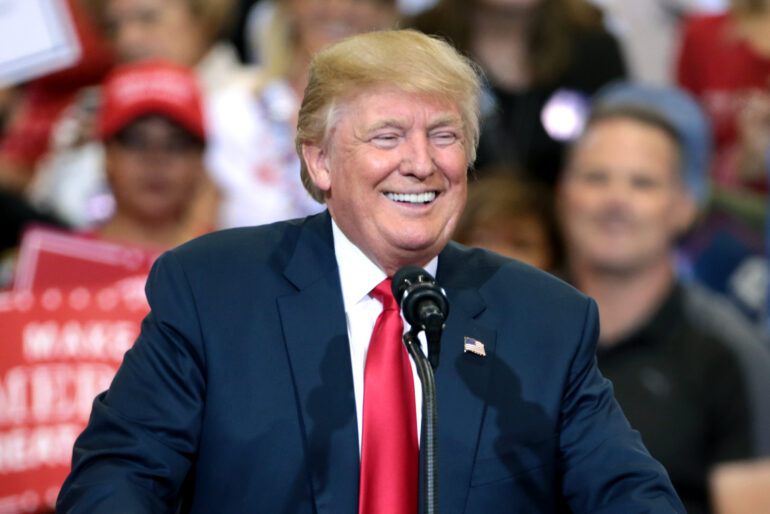President Donald J. Trump on Friday reportedly signaled that his administration is considering issuing rebate checks to Americans using the booming tariff revenue now flooding federal coffers.
The idea, floated during a press conference at the White House, comes on the heels of a historic budget surplus and underscores Trump’s long-standing belief that tariffs can serve not only as a tool of economic leverage but also as a generator of national prosperity.
“We’re thinking about that, actually. We have so much money coming in,” Trump said when asked if tariff revenue could be redirected back to taxpayers. “We’re thinking about a little rebate, but the big thing we want to do is pay down debt. But we’re thinking about a rebate.”
Trump’s remarks follow new federal data showing the government posted a $27 billion budget surplus in June. Much of that windfall was fueled by record-breaking tariff collections, which have now exceeded $100 billion in a single fiscal year for the first time in U.S. history, according to Reuters.
“You just made a lot of news,” Trump said, praising the idea of using the surplus to provide relief for working Americans. “A little rebate for people of a certain income level might be very nice.”
The president’s fiscal strategy contrasts sharply with years of soaring deficits under previous administrations.
His approach centers on using trade enforcement, not tax hikes, to generate revenue and promote fairness — a strategy that has proven increasingly effective. During a July 8 Cabinet meeting, Treasury Secretary Scott Bessent projected that tariff revenue could balloon to $300 billion by the end of 2025.
Trump’s “Liberation Day” tariffs, announced on April 2, targeted nearly every major trading partner with sweeping rate hikes.
Though he issued a 90-day pause one week later that softened most rates to 10%, the president followed through after the grace period expired, sending letters to foreign governments informing them of their revised tariff schedules.
Critics of tariffs, often from within the globalist wing of both political parties, have long claimed such measures would hurt American consumers.
But Trump has repeatedly pushed back, arguing that tariffs force foreign governments to treat the U.S. fairly and that the revenue can directly benefit the American people.
In fact, he has previously suggested that, with enough tariff income, the federal government could even begin to reduce reliance on income taxes.
Meanwhile, Trump continues to rack up trade victories. On Tuesday, he announced landmark trade agreements with Japan and the Philippines.
In a post on Truth Social, the president described the Japan deal as “perhaps the largest deal ever made,” noting that Japan will now pay 15% reciprocal tariffs on its exports to the U.S.
With tariff revenue at historic highs, debt reduction in focus, and new trade pacts bringing leverage back to Washington, Trump’s strategy appears to be delivering results — and, potentially, rebates.
[READ MORE: Trump Targets Fed Over Interest Rates and Ballooning Renovation Costs]




